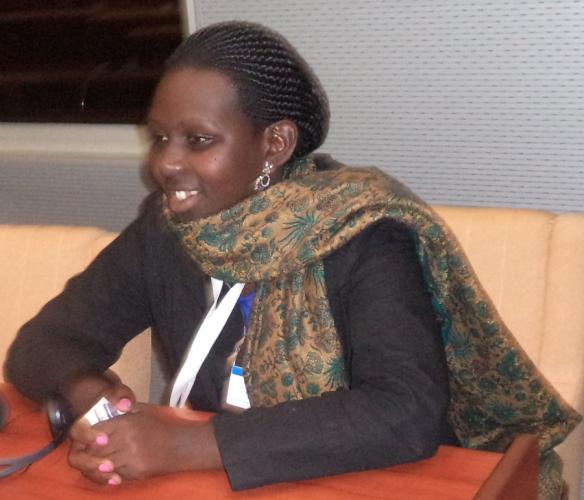
Brenda Kite is the rural projects manager of the Women of Uganda Network, an NGO that focuses on the use of ICTs among women, women organizations and youth to address issues of sustainable development.
Having been selected to take part in the second African School on internet governance, I was so anxious especially as the concept was very unclear to me. On the first day of the school, I became a little nervous and wondered whether I would “catch up” with the discussions especially when it got to the so many acronyms ccTLD, ATLD, DNS, ASO, NRO, RIR, RPKI among others. The wide range of participants seemed to be very knowledgeable about the concept of internet governance especially with others having taken part in the internet governance forums at the various levels.
I have been involved in ICT for development for a period of around three years now with Women of Uganda Network (WOUGNET), whose mission is to promote and support the use of ICTs by women and women organizations in Uganda, so that they can take advantage of the opportunities presented by ICTs in order to effectively address national and local problems of Sustainable National Development.
Albeit I was not confident to make submissions during the plenary sessions due to fear of blundering, I am grateful to the expert facilitators who made the whole process participatory. The small groups that were formed for the practicum encouraged contributions from all participants, micro blogging also provided avenues for free expression by the participants which made life easier. The availability of reading materials on the school website also gave me more insights thus making the concept lighter.
What next after the school?
I have gained more knowledge about internet governance specifically the need for a multi-stakeholder approach. Awareness about the existing declarations and institutions in place has also helped me to identify issues around which we can focus our sensitization about internet governance to the various stakeholders that we work with. Since WOUGNET is involved in ICT for development, we shall use our various platforms such as social media pages (mainly Facebook and Twitter), websites, mailing lists, print and e-newsletters to create awareness about internet governance, seek contributions from the general public and also partner with like minded organizations in Uganda to lobby and advocate for respect of internet rights by the various stakeholders.
